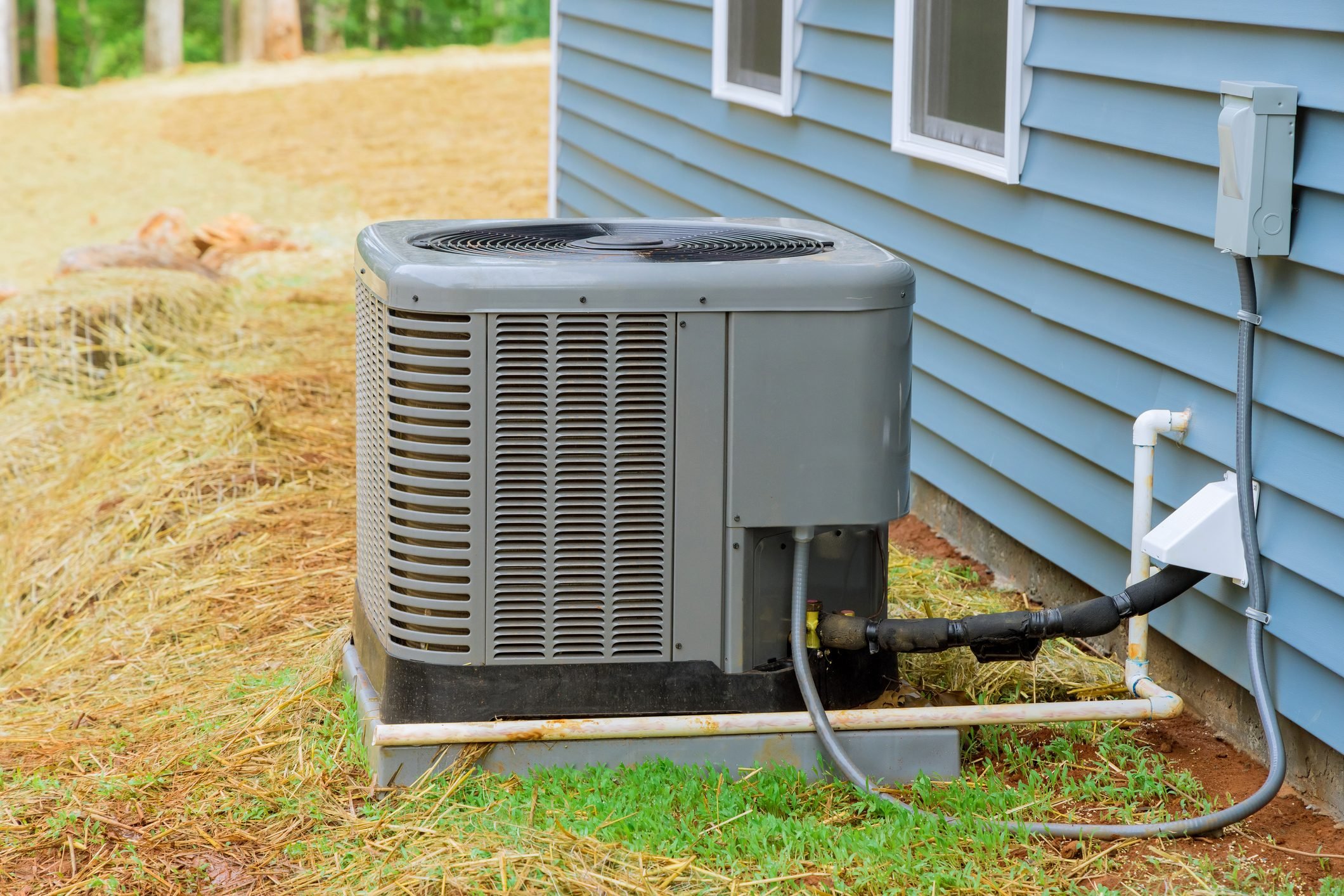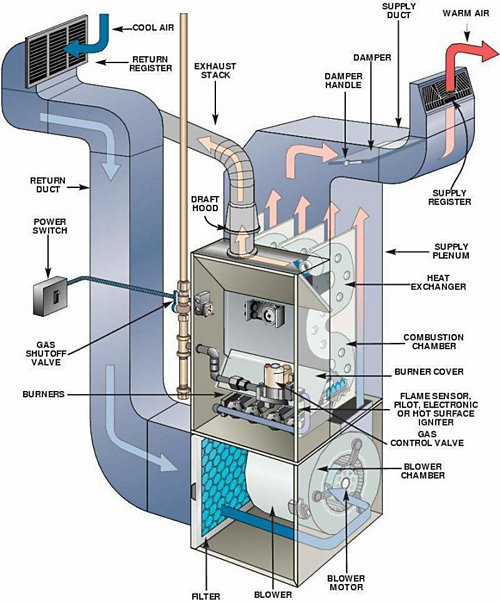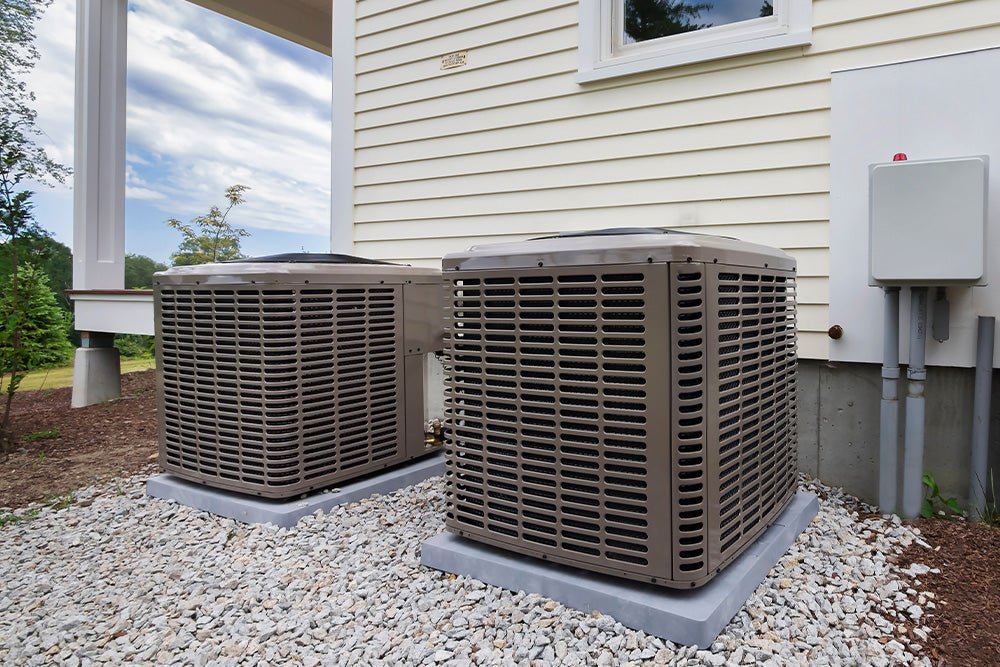Understand how HVAC experts provide on-demand support for urgent issues
Wiki Article
Discovering the Crucial Elements of a Reliable HVAC System
A reliable cooling and heating system is built on numerous vital elements that work in harmony. Each part, from the thermostat to the ductwork, plays an important role in keeping convenience and power efficiency. Recognizing these components is important for optimizing efficiency and improving interior air high quality. As one examines these elements, the intricate relationships in between them expose insights into improving general system effectiveness. What specific aspects add most to this efficiency?The Function of the Thermostat in HVAC Performance
Although typically forgotten, the thermostat plays a crucial function in the performance of HVAC systems. HVAC experts. This small tool acts as the primary nerve center, regulating temperature setups and ensuring optimal comfort within a space. By properly picking up the ambient temperature level, the thermostat interacts with the ventilation, heating, and air conditioning units to keep the preferred environment
An effective thermostat lessens power usage by turning on the cooling and heating system just when necessary, consequently avoiding too much heating or cooling. Modern smart and programmable thermostats improve this effectiveness further by enabling users to establish schedules and remotely change setups, adjusting to daily routines.
The positioning of the thermostat is crucial; incorrect location can lead to incorrect temperature level analyses, resulting in ineffective operation. Overall, a well-functioning thermostat not just boosts comfort however likewise adds substantially to energy financial savings and the longevity of the heating and cooling system.
Comprehending the Value of Air Filters
Air filters serve an essential feature in HVAC systems by ensuring that the air circulating within an area stays clean and healthy. These filters catch dirt, irritants, and various other contaminants, stopping them from being recirculated throughout the environment. By recording these particles, air filters add to improved interior air top quality, which can substantially benefit owners' health, especially those with allergic reactions or respiratory system conditions.Additionally, keeping tidy air filters boosts the effectiveness of a/c systems. Clogged up filters can restrict air movement, creating the system to work harder to maintain wanted temperature levels, resulting in increased energy intake and higher utility costs. Frequently changing or cleansing filters is a vital maintenance step that can prolong the lifespan of a/c tools. Inevitably, understanding the significance of air filters enables homeowners and structure supervisors to take proactive procedures to guarantee a well-functioning, efficient cooling and heating system that advertises a secure and comfy interior environment.

The Functionality of the Heating System and Heatpump
Heating systems and warmth pumps are vital parts of heating and cooling systems, liable for providing heat during chillier months. Heating systems operate by heating air via combustion or electrical resistance, then distributing it throughout the home through air ducts. They normally supply quick heating and can be sustained by all-natural gas, power, or oil, relying on the system type.Alternatively, warmth pumps transfer warm as opposed to generate it. They draw out warm from the outside air or ground, even in reduced temperature levels, and move it inside your home. HVAC experts. This double capability permits warmth pumps to additionally provide air conditioning in warmer months, making them functional options for year-round environment control
Both systems require appropriate maintenance to guarantee performance and long life. While furnaces excel in severe cold, warmth pumps can be helpful in moderate climates. Recognizing their unique capabilities aids home owners in choosing the most appropriate alternative for their heating needs.
Checking Out the Cooling System
The cooling device is a vital component of a/c systems, readily available in different kinds to match different needs. Recognizing the effectiveness ratings of these devices is necessary for making educated options regarding power intake and cost. This section will discover the diverse kinds of air conditioners and clear up exactly how effectiveness ratings impact efficiency.Kinds Of Air Conditioners
While different factors affect the option of cooling systems, recognizing the different types offered is crucial for property owners and building managers alike. Central air conditioners are made you can try these out to cool down entire homes or structures, using a network of ducts for air movement. Home window systems use an even more localized solution, perfect for solitary spaces or tiny areas. Mobile ac unit provide adaptability, allowing individuals to move the device as needed. Ductless mini-split systems are another alternative, integrating the performance of main systems with the convenience of Read More Here zoning, as they require no ductwork. Geothermal systems harness the earth's temperature level for energy-efficient air conditioning. Each kind includes unique advantages, making educated choices crucial for reliable environment control.
Effectiveness Scores Clarified
Recognizing efficiency scores is essential for picking the best cooling system, as these metrics provide insight into the system's performance and energy consumption. The most common score for air conditioning unit is the Seasonal Energy Efficiency Proportion (SEER), which determines the cooling outcome during a normal cooling period divided by the overall electric power input. A greater SEER indicates better performance. Furthermore, the Power Efficiency Proportion (EER) is used for determining efficiency under specific problems. An additional essential metric is the Power Star qualification, which indicates that a device fulfills stringent power performance standards. By examining these ratings, consumers can make enlightened options that not only optimize comfort yet also reduce power expenses and environmental impact.The Relevance of Ductwork and Airflow
Effective ductwork design and airflow administration play vital roles in the total efficiency and performance of heating and cooling systems. Proper ductwork warranties that conditioned air is dispersed evenly throughout a space, minimizing temperature variations and enhancing comfort. Well-designed ducts decrease resistance to air movement, reducing the workload on cooling and heating tools and inevitably lowering energy intake.Airflow monitoring involves strategically putting vents and registers to enhance the circulation of air. This stops usual concerns such as chilly or warm places, which can take place when air flow is obstructed or improperly well balanced. In addition, the right air duct products and insulation can further enhance efficiency by lowering heat loss or gain during air transit.
An efficient ductwork system not just contributes to energy cost savings yet can also prolong the life-span of cooling and heating devices by decreasing our website unneeded pressure (HVAC experts). Consequently, recognizing the importance of ductwork and air flow is crucial for accomplishing peak HVAC system efficiency
Normal Maintenance Practices to Boost Performance
Regular maintenance practices are essential for guaranteeing peak performance of HVAC systems. These practices include routine examinations, cleansing, and required repair work to maintain the system running effectively. Consistently altering air filters is vital, as stopped up filters can block airflow and decrease performance. On top of that, technicians must inspect and clean evaporator and condenser coils to avoid getting too hot and energy wastage.Annual expert evaluations are additionally recommended, as trained specialists can identify potential problems before they intensify. Lubricating relocating parts reduces damage, adding to a much longer life-span for the system. Additionally, making sure that the thermostat works properly help in maintaining suitable temperature level control.

Often Asked Questions
Exactly how Often Should I Change My Thermostat?
Thermostats need to commonly be replaced every 5 to one decade, depending upon usage and innovation developments. Normal checks are a good idea to ensure peak efficiency, specifically if experiencing irregular temperature control or raised power costs.What Size Air Filter Is Best for My Heating And Cooling System?
The most effective dimension air filter for a heating and cooling system differs by unit style. Typically, it's crucial to seek advice from the proprietor's handbook or check the existing filter measurements to ensure peak efficiency and air top quality.Can I Mount a Warmth Pump Myself?
Setting up a heatpump independently is feasible for proficient individuals, but it needs knowledge of neighborhood codes and electric systems. Hiring a specialist is recommended to assure appropriate setup and ideal system performance.Just how Do I Know if My Ductwork Is Reliable?
To figure out ductwork efficiency, one ought to look for leaks, action air flow at vents, examine insulation top quality, and examine temperature level differences in between supply and return ducts. Specialist assessments can provide extensive insights right into general efficiency.What Are Indications My Cooling And Heating Requirements Immediate Upkeep?
Signs that a heating and cooling system needs instant upkeep consist of unusual noises, inconsistent temperature levels, increased power expenses, undesirable odors, and regular biking. Attending to these problems without delay can prevent further damage and guarantee top system efficiency.Air filters offer a vital feature in Heating and cooling systems by assuring that the air circulating within an area continues to be clean and healthy. In addition, maintaining clean air filters enhances the performance of Heating and cooling systems. Ductless mini-split systems are one more alternative, incorporating the performance of central systems with the benefit of zoning, as they need no ductwork. Recognizing performance ratings is essential for selecting the best air conditioning system, as these metrics supply understanding into the system's performance and energy consumption. The best dimension air filter for a Cooling and heating system differs by device layout.
Report this wiki page